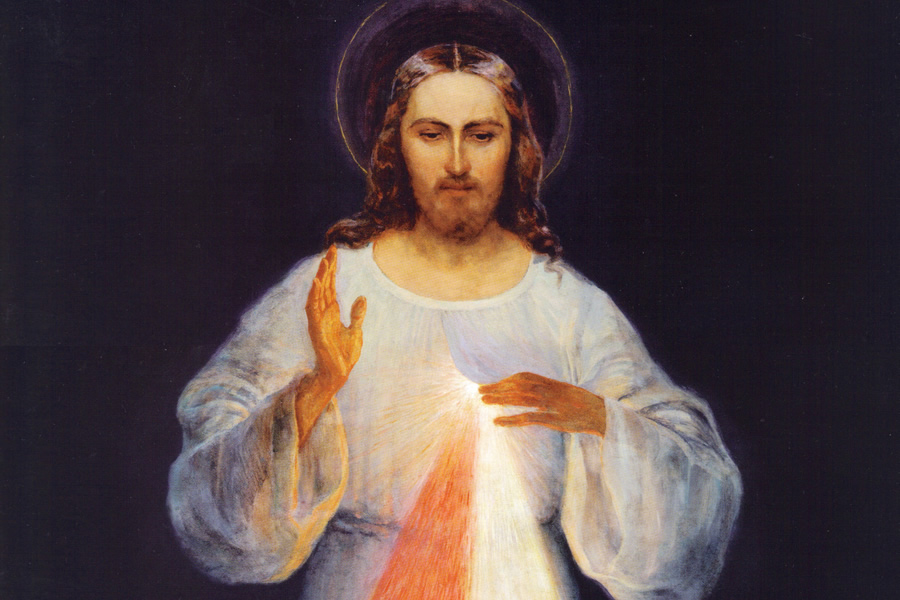
Discover Resurrection Faith
04-24-2022Weekly Reflection© LPiEven Thomas struggles to remove his boulder! Being very pragmatic and determined, he wants to see the risen Christ for himself! Thomas’s boulder is heavy with mistrust. Many of ours are too. A certain amount of skepticism is good, as it can save us from being duped or misled. But we can become so skeptical of things that it erodes our ability to trust anything we see or hear. Skepticism can actually be a well-disguised defense mechanism that we use to prevent us from being hurt or perceived as a fool. Having too much ego protection is a real risk. Thomas, because of the boulder blocking his vision, could not even trust the word of his friends.
Boulders are hard to move. It’s difficult to seek change or take a risk, especially when we are so afraid to be vulnerable or reluctant to trust another’s word. When we are closed minded, overly pragmatic, unwilling to see things in a different way, stubborn or defensive, it is difficult to be surprised by God and stretched. We need to be less guarded, self-assured, and self-absorbed. God cannot break into the ordinary moments of our lives and inspire us when we cling to doubt. If we are going to discover resurrection faith, we have to believe that what the witnesses say is true, especially when they are credible. We also have to trust that the risen Christ is alive in us, too!
While the first witnesses to the Resurrection have faded into history, there are many others who have come after them. They continue to inspire by walking the talk of faith. They are the martyrs who offer their lives for the Gospel, the simple holy people in our communities who cling so steadfastly to their faith, those who have touched despair and found new hope and the ones who, even in spite of ridicule, still pursue their hunger and thirst for God. They are our friends, acquaintances, biblical heroes, and saints, and many others who are convinced that they have seen the Lord! The risen Christ may not surprise us with the same kind of visit as he did the first disciples, but God finds other ways. All we have to do is open our eyes, remove whatever is preventing us from seeing and believing and exclaim: “My Lord and my God!”
La Liturgia de este II Domingo de Pascua celebra el Domingo de la Misericordia. El Evangelio nos dice que ocho días después se les apareció Jesús. Bridándoles su paz entonces y ahora a nosotros. Esa paz que no se va, la que se queda en el corazón y se brinda a los hermanos y hermanas que están a nuestro alrede-dor. “¡La paz este con ustedes!” (Juan 20:21). Esas hermosas palabras de Jesús hacen eco en nuestro mundo, roto por el sufrimiento, en pa-labras del Papa Francisco en la actualidad.
“En el centro de este domingo, con el que se termina la octava de pascua, y que san Juan Pablo II quiso dedicar a la Divina Misericordia, están las llagas gloriosas de Cristo resucitado. Él ya las enseñó la primera vez que se apareció a los apóstoles la misma tarde del primer día de la semana, el día de la resurrección. Pero Tomás aquella tarde no estaba. Ocho días después, Jesús se apareció de nuevo en el cenáculo, en medio de los discípulos: Tomás también estaba; se dirigió a él y lo invitó a tocar sus llagas. Y entonces, aquel hombre sincero se arrodilló delante de Jesús y dijo: ‘Señor mío y Dios mío’” (Juan 20:28).
En el cuerpo de Cristo resucitado las llagas permanecen, porque son el signo permanente del amor de Dios por nosotros, y son indispensables para creer que Dios es amor, misericordia, fidelidad”. Sus heridas son medicina que nos curan (1 Pedro 2:24 ver Isaías 53:5). La misión de Cristo Resucitado continúa en mí. ¿Qué hago para llevarla a cabo?
BACK TO LIST